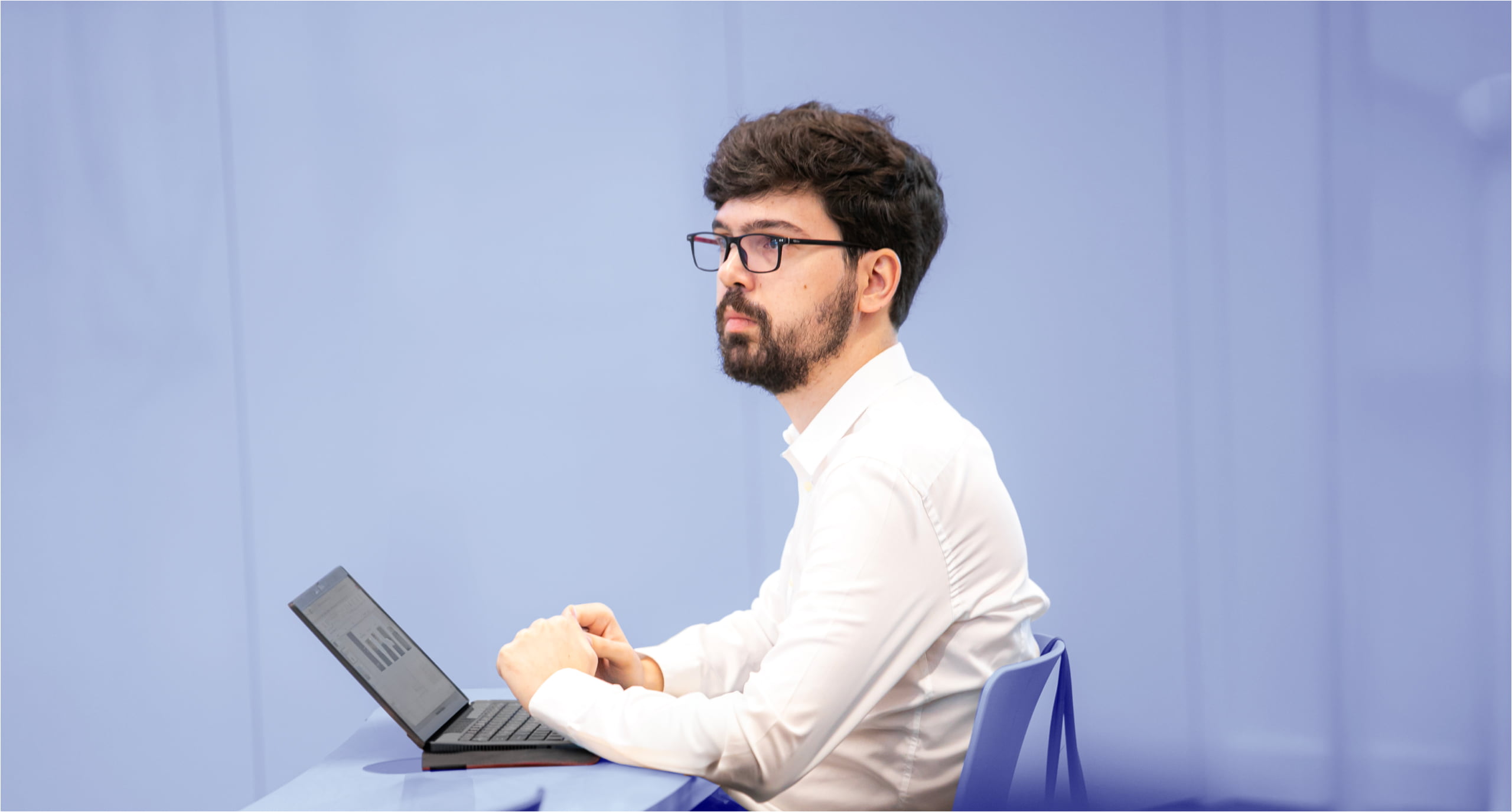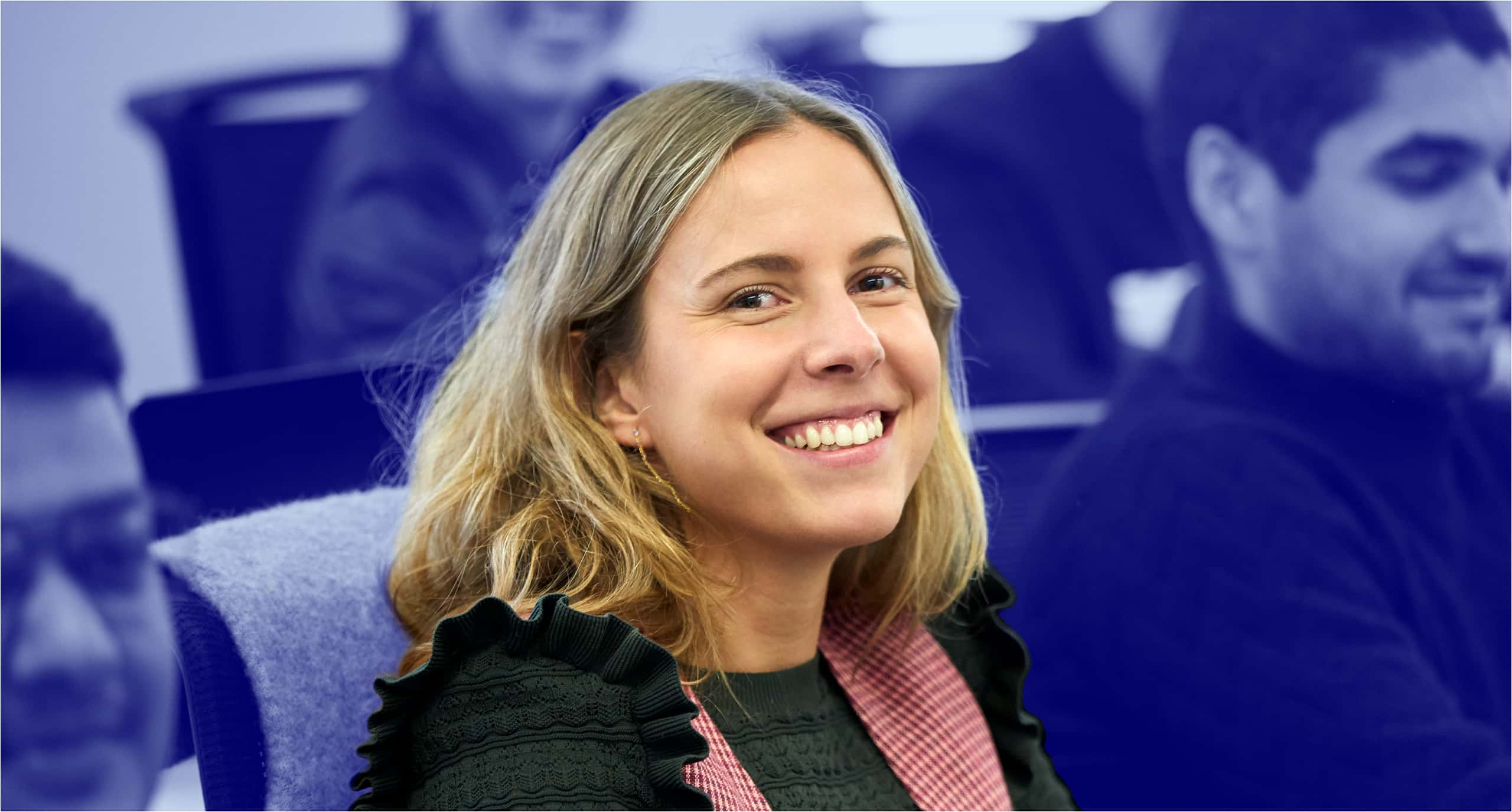17/02/2025
Enjoy a taste of what's on offer during the Executive Master in Digital Transformation & Innovation Leadership.
Are you interested in working in digital transformation consultancy? It’s a broad field and there’s a lot of change involved. In fact, it’s easy to feel lost if you’re not up to date. To help you on your journey, we’ve compiled career advice from Jon Oleaga, a professional consultant, entrepreneur and faculty member of the Executive Master in Digital Transformation & Innovation Leadership.
Being in the right place to understand digital transformation
“When I was working at Banco Inter, I hired someone who was teaching at IE,” Jon tells us. “We were doing digital marketing and analytics, and he was really surprised by what we were doing. He asked me to talk to his IE class about it. The students were amazed because I was talking about things I was applying in real life, not just stuff I’d read about.”
It’s unsurprising that Jon found his way onto the IE Business School faculty—we’re determined to give students practical knowledge that’s relevant to industry. Jon’s expertise and entrepreneurial spirit made him a perfect fit. “I had a great time at Banco Inter,” he says. “But I left after a year. I really wasn’t into the corporate side of things—it was too regulated for me. I’m the kind of person who likes freedom to do things my way. I decided to leave and start my own company.”
Jon maintains that opening a digital transformation consultancy was a gradual journey to success.

“First, I focused on email marketing and created a tool to help automate it. Now, though, I’ve done consulting on all sorts of things—blockchain, IVR, AI—and clients want to know how to use these technologies and if it’s the right time to implement them. Sometimes they just want advice on tasks that are taking up too many resources and could be automated with AI. I help them find those opportunities and implement the right solutions.”
Jon’s thoughts on the meaning of digital transformation
As we get deeper into the specifics of digital transformation, Jon points out its flaws. “The term “digital transformation” is a bit outdated,” he says. “All companies are already digital to some extent. What we do now is more about helping companies change. We’re change consultants, not just digital consultants. A big part of that change is dealing with people. AI might be the future, but there are always people in the company who will need to be trained or helped with the technology. Some might be against it, and some just won’t know how to use it.”
And this confusion is just why companies need digital transformation consultants.
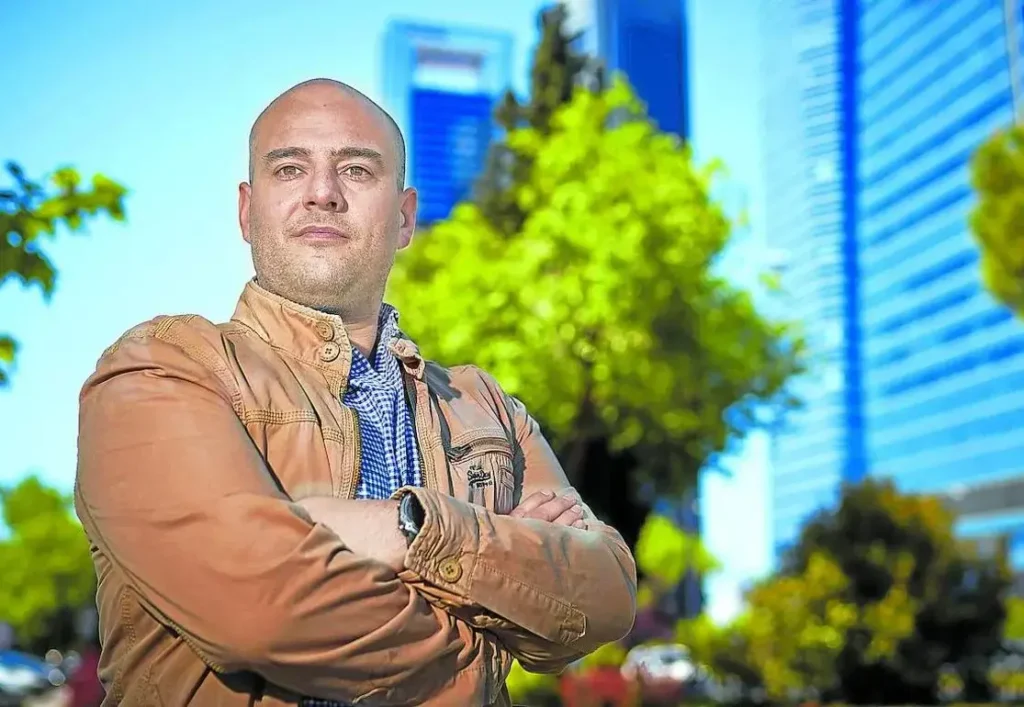
“I get a lot of referrals. Big consulting firms will do a report for a company, but sometimes the company doesn’t understand it, so they call me to explain it. Or they’ll call me when they realize they have an inefficiency, like spending too much time on manual reports. That’s where AI comes in. Right now, I’m working with companies like Genentech, helping them automate their reports. It’s surprising how many big companies are still doing this manually—20 to 30-page reports every week, and they’re doing all the data transformations by hand.”
And more companies are realizing just how powerful new technology can be. “I had a client last week where the automation tool I set up failed,” says Jon. “And they spent the entire night manually preparing the reports. They called me to figure out what went wrong, and it was a wake-up call for them about how much time they were wasting on manual tasks.”
Digital transformation advice for companies in search of change
While understanding technology is essential for leaders, Jon points out the importance of keeping the human workforce inspired. “You know, for companies adopting new technology to become more efficient, it’s all about empowering employees. If employees have a few tools that allow them to do more in less time, their productivity skyrockets. That’s what we’re teaching students at IE Business School—how to be super productive.”
“It reminds me of a story from back when Excel was first released,” Jon continues. “The director of AI at Microsoft once told me that if you went to a big company in New York years ago, they’d have an entire floor of people doing calculations that you can now do in Excel with just a couple of clicks. It’s the same idea—empowering employees to do more with less. And that’s how we should see technology, as a tool for empowerment.”
“Now, looking ahead, AI is just one of the waves of technology coming our way. We don’t know exactly what the future holds, but imagine 5-10 years from now, quantum computing becomes a reality. How are companies going to use that? If you want to be at the forefront of these technological waves, you have to be ready to lead projects that use these new technologies. The waves of tech changes will come faster, and you’ll want to be the one leading that change.”
What is the future of digital transformation consultancy?
The future of digital transformation is uncertain. As new technologies develop, we’re tasked with staying on top of change. Jon is all too aware of this fact—though he has his own predictions: “I think robotic process automation (RPA) is on its way out. It’s not as flexible as AI. I’m not saying RPA is completely dead yet… but it’s getting there.”
Jon is aware that, even as a digital transformation consultant, there’s no certainty in the impact of technological trends. “Honestly, no one knows for sure. Ten years ago, I was really excited about quantum computing, started learning to code on it, and then… nothing really happened. Right now, there’s also a lot of buzz around XR (Extended Reality). But XR isn’t quite ready for everyday use in most companies.”
Despite this uncertainty, Jon has his own theories on how AI is going to continue transforming everyday life.
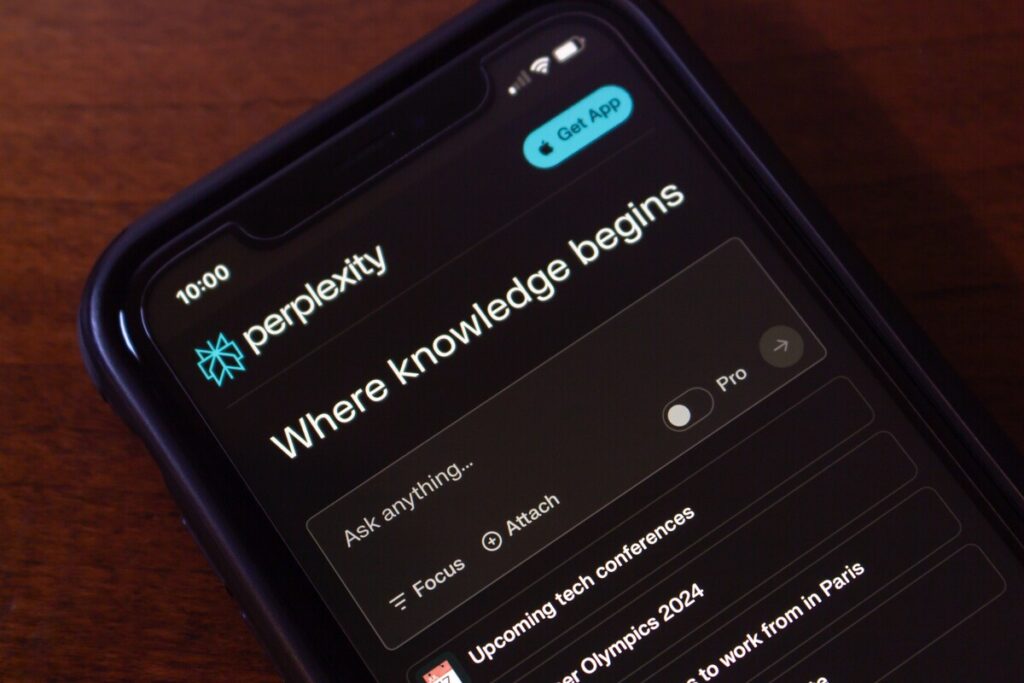
“The next big shift will be in how we interact with the internet,” says Jon. “Imagine instead of browsing websites, you just use an AI agent like ChatGPT to find and book a plane ticket. It’ll handle everything and send you a confirmation email. That’s going to become the norm in the next 1-2 years. When that happens, websites and apps might not even be necessary anymore. Take Perplexity, for example. It’s an AI tool that’s integrated with Shopify, allowing users to buy products directly from the AI platform. This kind of functionality will only expand in the future. The first companies to adapt their digital products for AI agents are going to get a huge advantage in this next wave. That’s why I tell my students to be ready for it—because traditional websites and apps might not make sense in the future.”
How the Executive Master in Digital Transformation & Innovation Leadership prepares students for new technology
The only way to provide digital transformation consultancy is through continual learning. We’ve ensured that our Executive Master in Digital Transformation & Innovation Leadership is led by experts like Jon who can guide you in the right direction.
“One of my clients wanted to develop a mental health chatbot,” Jon warns. “The technology wasn’t quite there, and it would’ve been an expensive project. But then, OpenAI released a feature that solved their problem in just a day. The project went from being a million-dollar investment to something they could do for almost nothing. This kind of change happens constantly, and it’s crucial to know when to move forward with a tech project and when to hold off. That’s exactly what I teach my students. A lot of companies invest in new technologies only to have their employees reject them, wasting huge amounts of resources. That’s a big problem, and it’s something I want my students to learn how to avoid.”
At IE Business School, we’ve designed the Executive Master in Digital Transformation & Innovation Leadership for mid- and senior-level professionals with C-Suite ambitions.
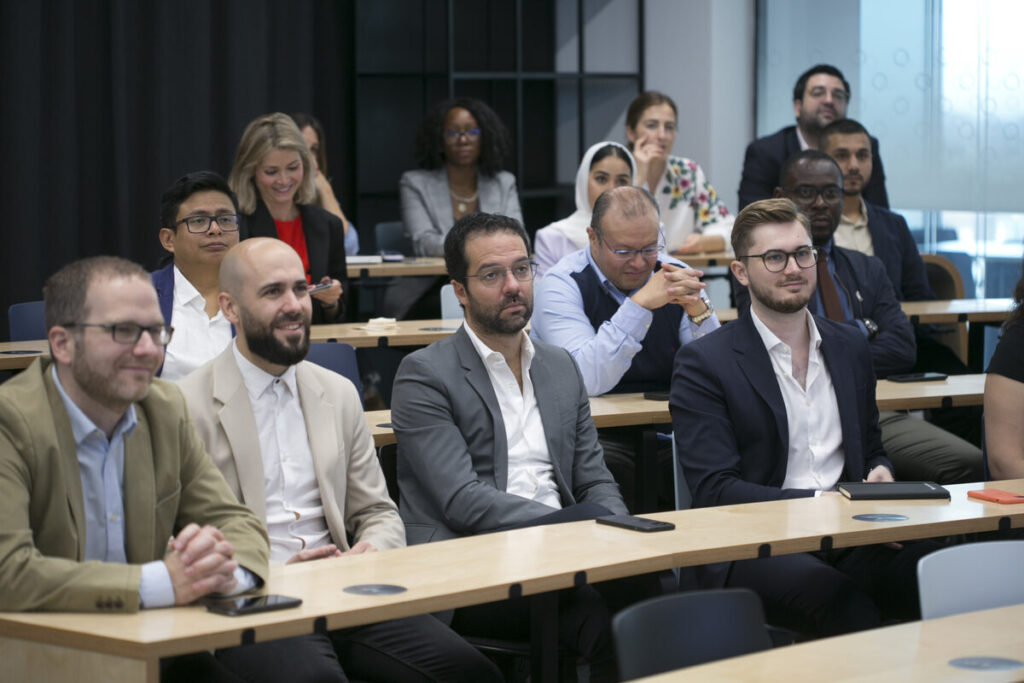
Implementing successful digital transformation strategies are now vital in ensuring a company’s success. Through classes with Jon, you’ll receive in-depth knowledge of digital technologies, business innovation and leadership expertise. The blended learning format allows students to balance their studies with professional commitments, while still providing opportunities to form deep bonds with your classmates. By the end, we aim to have transformed you into the Next Best You.
“It’s amazing how education has changed at IE Business School,” says Jon. “I was actually teaching my students how to build interactive dashboards with real-time data last week using ChatGPT. What’s amazing is how quickly they can now do things that used to take hours—like building a dashboard in just 20 minutes. Technology is empowering us to do so much more in such less time. Some students are still skeptical about AI, but I keep telling them, it’s here to help us do more. If we learn to use it properly, we can do 10 times more than we could have last year. The goal is to teach our students to be those 10X leaders—efficient, capable, and ready for the future.”
Benjamin is the editor of Uncover IE. His writing is featured in the LAMDA Verse and Prose Anthology Vol. 19, The Primer and Moonflake Press. Benjamin provided translation for “FalseStuff: La Muerte de las Musas”, winner of Best Theatre Show at the Max Awards 2024.
Benjamin was shortlisted for the Bristol Old Vic Open Sessions 2016 and the Alpine Fellowship Writing Prize 2023.



